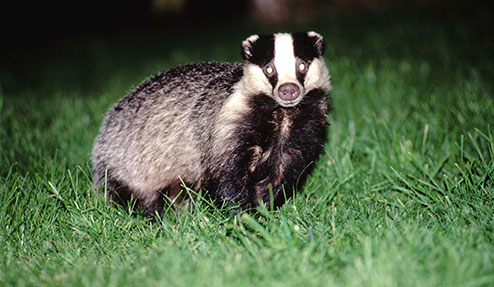Report brands badger cull an ‘epic failure’

The “epic failure” of last autumn’s badger cull to combat bovine TB makes it hard to justify continuing, according a report co-authored by a government adviser.
The comments were made in the State of Britain’s Mammals a report co-authored by David Macdonald for the People’s Trust for Endangered Species.
Professor Macdonald, director of Oxford University’s wildlife conservation research unit, also chairs Natural England’s scientific advisory committee.
See also: Analysis: Where next for the badger cull?
Controlling the scourge of bovine TB (bTB) in cattle, and managing the role of badgers in infecting cattle, is among the most challenging wild mammalian disease problems, the document said.
“Although both badgers and cows tend to do well in places with mixed pasture and woodland, there is little evidence of an association between high badger densities and elevated cattle TB incidence.
“Nonetheless similar genotypes of M bovis are found, more often than would be expected by chance, in local cattle and badger populations.”
The report said much was learned from the Randomised Badger Culling Trial (RBCT), which took place from 1998 to 2005.
But exactly how M bovis is transmitted between badgers and cattle remains unknown, it added.
Reductions in cattle bTB achieved by the RBCT proactive culling may have arisen from a number of facets of the trial and the way in which it was conducted, the report suggested.
Culling resulted in an approximately 70% reduction in badger density and badger immigration was limited by the use of geographical barriers.
But last autumn’s culling trials – in Somerset and Gloucestershire – each fell short of a target 70% reduction in badger densities.
“Even after extensions, they killed only 65% and 39%, the latter of which, in Gloucestershire, approximates the situation known to deliver the worst possible outcome,” said the report.
“Following this epic failure, it is hard to see how continuing this approach could be justified.”
On the subject of vaccination, the report said there are two targets: the cattle and the badgers.
“Importantly, trapping and injecting does not lead to perturbation,” it said.
“Trials with oral vaccine suggest that they too can reduce the severity of the disease in vaccinated badgers.”
Badger culling is expected to resume in Somerset and Gloucestershire later this summer as the pilot project enters its second year.
